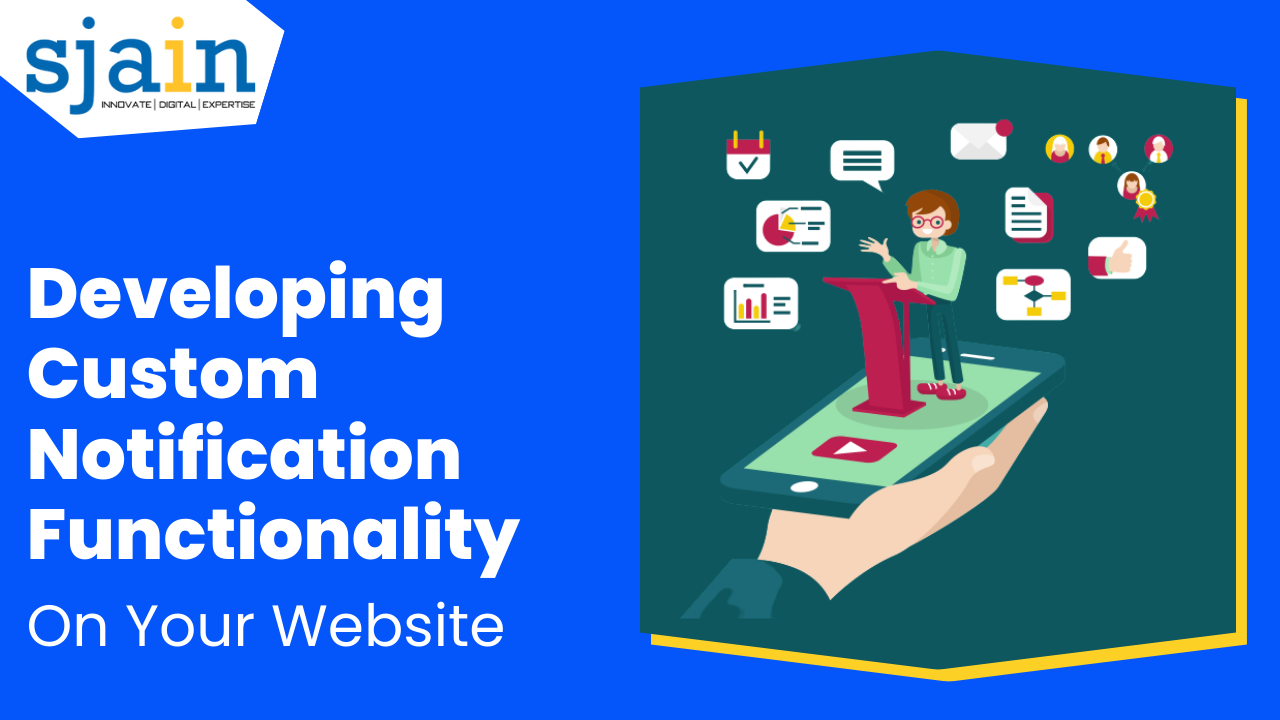Developing Custom Notification Functionality on Your Website
One of the primary aims of webpage owners and developers is to keep consumers interested and informed. One effective way of doing this is by using custom notifications. Custom notifications allow you to send important messages and updates to your users in real time, helping you to increase user engagement and improve the overall user experience. In this article, we will be discussing how you can develop custom notification functionality on your website using hooks.
What Are Custom Notifications Functionality?
Custom notifications are messages that are sent to users in real-time to notify them of important events or updates. These notifications can be triggered by different events such as new messages, new content, updates, etc. Custom notifications are a powerful tool for improving user engagement and keeping users informed about what’s happening on your website.
Why Use Custom Notifications Functionality?
Using custom notifications on your website has several benefits.
Improved User Engagement
Custom notifications help to keep users engaged with your website by notifying them of new content, updates, or events.
Increased User Retention
Custom notifications help keep users informed about what’s happening on your website, which can help to increase user retention.
Improved User Experience
Custom notifications help to improve the overall user experience by providing users with timely and relevant information.
Developing Custom Notification Functionality in Your Website with a Hook
To develop custom notification functionality on your website, you can use hooks. A hook is a piece of code that is executed when a specific event occurs on your website. Hooks are used to add or modify functionality on your website.
Here are the steps to develop custom notification functionality on your website using a hook:
Step 1: Choose a Hook
The first step is to choose a hook that will trigger your custom notification. Some common hooks that you can use include:
New Post/Pages: This hook is triggered when a new post or page is published on your website.
Comments: This hook is triggered when a new comment is posted on your website.
User Login/Logout: This hook is triggered when a user logs in or logs out of your website.
Step 2: Create a Function
After you’ve decided on a hook, you’ll need to write an algorithm that will get called when the connection is activated. In this function, you will write the code that will send the custom notification to your users.
Step 3: Add the Function to Your Website
The final step is to add the function to your website. You can do this by adding the function to your theme’s functions.php file or by using a plugin such as Code Snippets.
Example Code
Here is an example code for sending a custom notification to users when a new post is published on your website:
Php code
function notify_users_on_new_post( $post_id ) {
$post = get_post( $post_id );
$author = get_userdata( $post->post_author );
$message = ‘A new post titled ‘ . $post->post_title . ‘ has been published by ‘ . $author->user_login . ‘. Check it out!’;
wp_mail( ‘[email protected]’, ‘New Post Published’, $message );
}
add_action( ‘publish_post’, ‘notify_users_on_new_post’ );
We’ve written a method executed notify_users_on_new_post that will be invoked whenever a new post is made on our website. The method retrieves the article’s title and the writer’s identity and sends an email notice to [email protected].
Conclusion
Custom notifications are a powerful tool for improving user engagement and keeping users informed about what’s happening on your website. By using hooks, you can quickly develop custom notification functionality on your website. Whether you want to notify users about new posts, comments, or any other events on your website, custom notifications can help you achieve that goal. By following the steps outlined in this article, you can quickly develop custom notification functionality on your website using hooks.
In addition to using hooks, you can also use plugins and third-party services to develop custom notification functionality on your website. There are several plugins available to assist you in sending alerts to your users in a variety of ways, such as push messages, SMS updates, email notifications, and so on. Some popular notification plugins include OneSignal, PushEngage, and Pusher.

